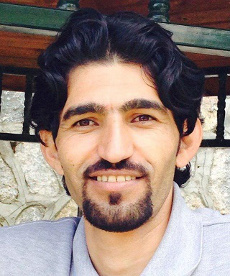Judiciary Official on Mohammad Salas Case: “We had a confession. Why would we need fingerprints?”
 An Iranian judiciary official has announced that the confession of the recently-executed darvish Mohammad Salas was enough to prove his guilt and sentence him to death and denied the need for any forensic investigation such as fingerprinting. Salas’ own lawyer has repeatedly claimed the confessions was in fact coerced under torture, and that other evidence exists which demonstrates Salas’ innocence.
An Iranian judiciary official has announced that the confession of the recently-executed darvish Mohammad Salas was enough to prove his guilt and sentence him to death and denied the need for any forensic investigation such as fingerprinting. Salas’ own lawyer has repeatedly claimed the confessions was in fact coerced under torture, and that other evidence exists which demonstrates Salas’ innocence.
Gholam Hossein Isma’ili, Head of the Ministry of Justice for Tehran Province, made the remarks in a session broadcast by Tasnim news and circulated on social media:
“Confessions are the king of evidence. In this case we have, in the first place, repeated confessions from the accused. In terms of the important the role and position of confessions: had we not gone to collect any other evidence, confession would have been enough. The defendant never denied he was behind the steering wheel, that he was present at the scene, and that he committed this great crime, for us to need to take fingerprints and go and identify someone.”
Salas was executed the morning of June 18 despite the fact that serious questions surround his whereabouts at the time of a mid-February bus collision for which he was sentenced and lawyers and other observers have identified serious due process failures in his case.
Salas’ lawyer, the recently arrested Zeynab Taheri, reported that Salas had been tortured into a coerced confession. Taheri stated on multiple occasions that Salas had subsequently denied the confession he made while in custody, and claimed he had already been arrested at the time of the collision. Before Salas’ execution and Taheri’s arrest, Taheri stated she would produce an eyewitness to testify that Salas was not at the scene of the crime, in addition to other “undeniable” evidence.
Ismai’li’s characterization of confession as “the king of evidence” is reflective of the Iranian judiciary more broadly. The judicial system regularly sentences defendants to death on the basis of confessions alone without further investigation – a standard of evidence ripe for abuse, which incentivizes the use of torture and coercion.
For more on the grave doubts and failures of due process which marked Salas’ adjudication, see ABC’s newsletter, “For Mohammad Salas, a Retrial is the Least Iran’s Judiciary Can Do.”





 My Interrogator Said: You Are An Ass, And Asses Do Not Merit Human Rights
My Interrogator Said: You Are An Ass, And Asses Do Not Merit Human Rights